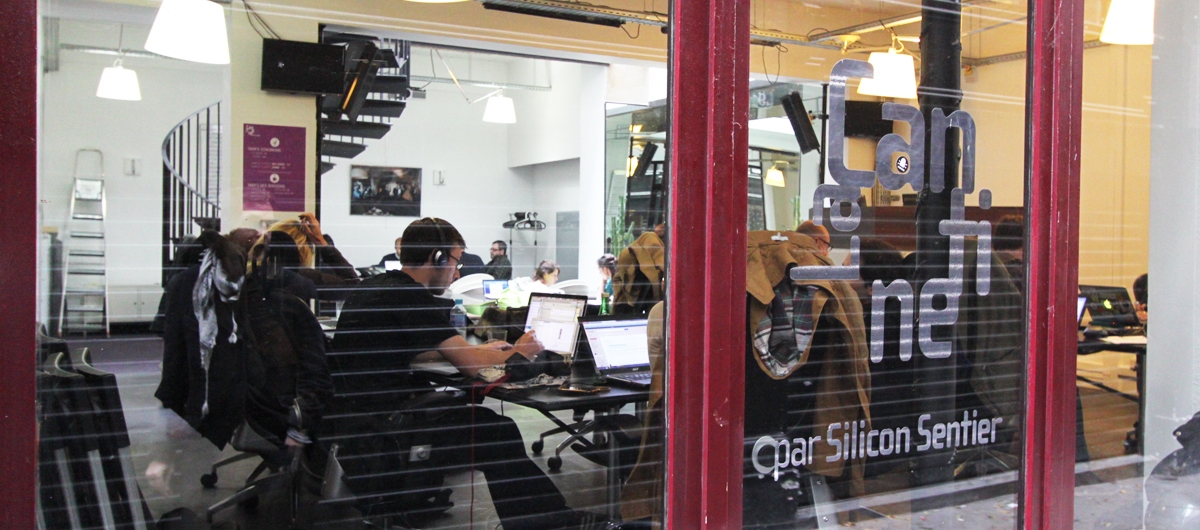«Without city government support, some coworking spaces would have never existed» say some founders of coworking spaces in France. Local governments or Public organizations such as «La Fonderie» have supported the Coworking movement for a long time, by making calls, planning events and networking. Actually, for the state and local governments, coworking has been an interesting part of economic development policy. Deskmag has interviewed la Cantine and Mutinerie, two pioneers of the coworking movement in Paris. We asked them exactly how governments have been involved in coworking.
When a local government promotes Coworking
In 2012, La Fonderie, an organization linked to Paris‘s local government, has supported the last Coworking Europe Conference and the Coworking Weekend, an event that stated a clear goal of «three days to upgrade the French Coworking community». The organization has highly contributed structuring and developing the Coworking movement through its support and its participation in special events, which were aimed at connecting the different actors and communities of Coworking.
Also, following a call for projects issued in 2012 by La Fonderie, the city of Paris will finance 14 projects, including Telecenters and Coworking spaces on a budget of 830.000 euros. The 2013 edition of the call is currently running on a budget of 1 million euros. In other words, it’s a great opportunity for the coworking movement in Paris.
«For two years we saw a real development regarding public authorities support in France and especially in the Paris region» says Nathanael Sorin-Richez, the founder of La Cantine by Silicon Sentier, the first coworking space opened in France and in Paris. As an association, La Cantine has been partly supported by regional and local public authorities since it took its first steps in 2008.
The French ministry of industry has also encouraged the dissemination of La Cantine’s model and success factors. After a few years, the concept behind Cantine has been successfully adapted in other French regions, thanks to the support of local governments, which have considered coworking as a source of economic development.
Coworking as an economic development tool
La Cantine is now its own label and has created a network of five Cantines, which can be found in Paris, Nantes, Toulouse, Toulon, and Rennes. The network serves as a successful example of cooperation between local governments and coworking spaces. It is interesting to notice that the Coworking space is just a part of the different services provided by the «Cantine» model. It is at the service of a local ecosystem: it also organizes free events, training for digitals actors communities and provides a collaborative space for producing and testing innovating projects. «These subsidies allow us to develop these actions of general interest» says Nathanael.
In France, the state and public authorities are highly involved in regional economic development projects, and the French ministry of industry has even recognized coworking as a driver for innovation and economic development. Thus, it is no longer a surprise to find many coworking projects supported by long-term public and private partnerships.
Non-profit associations are more likely to get public support
While most European coworking spaces are commercial companies launched through a bottom up initiative, the situation in France is more mixed. According to a study by Silicon Sentier, which focused on 17 of the biggest French coworking spaces, 12 coworking space projects were launched through public/private partnerships and only 5 through private initiative. There is one reason why association is the predominant form.
Most of these associations have been created «ex nihilo». By gathering different local contributors, such as the freelancer associations, business clusters, economic development agencies, theses associations will quickly enhance their credibility. They show logic and general interest and as a result are more willing to get public subsidies and support.
Antoine Van den Broek is the cofounder of the coworking space Mutinerie in Paris. He says that "without city governments support, some projects would have never existed". Nevertheless, Antoine pointed out that this strategy is clearly top down oriented, which is in contradiction with the bottom up approach to coworking as well as the spontaneous nature attributed to these kinds of spaces.
Also, it is not rare to see business clusters or attractive employers being part of the local ecosystem that is supporting a coworking project. In these cases, local governments are often more likely to make compromises or support a coworking space in that relates specifically to the region. This strategy could actually lead to the thematization of some coworking spaces. «That’s why it is important to figure out coworking as a network of interconnected places » says Nathanel.
>> Next page: Private entrepreneurs vs. non-profit associations








